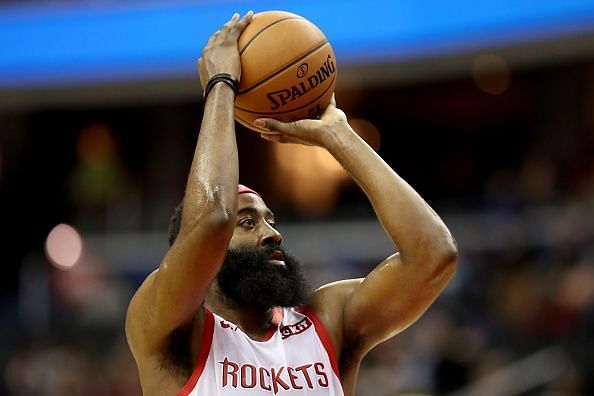
NBA 2018-19: Houston Rocket's early troubles indicated more than just Carmelo Anthony
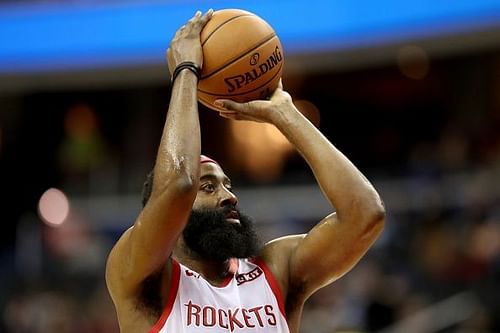
The Houston Rockets decided on November 15th, 2018 to part ways, with future hall of famer, Carmelo Anthony. While Carmelo Anthony wasn’t the only problem, his removal from the lineup plays a role in any solution.
After winning 65 games last year, the Rockets are only 9-9 so far this season. Carmelo Anthony was not going to help right the ship, but he was or is only part of the problem.
Houston’s issues are varied but stem from offseason decisions. The Rockets made roster changes from last year to this that have weakened the team’s defense. Management and ownership had concerns with the luxury tax and team payroll. Finally, Houston’s management team decided to make up for other roster defections with a star name.
The Houston Rockets were extremely good defensively last year. They are great offensively, with James Harden and Chris Paul leading the attack, but they pushed Golden State to a 7 game Eastern Conference Final in 2018 because they could defend.
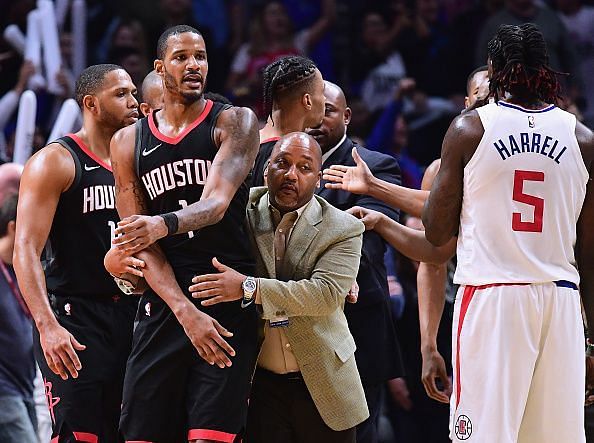
While Trevor Ariza, an aging veteran may not be considered an elite individual defender, he had been, in Houston, since 2014 and knew the Rockets’ system. However, he signed a one year $15 million dollar contract to play in Phoenix for this season. If Ariza was an average defender, Luc Mbah A Moute was a strong defender. Between Ariza, P.J. Tucker and Luc Mbah A Moute the Rockets could handle the quickness required for a defense that relied on switching off of pick and roll offenses.
The versatility, of these wing players, meant big man Clint Capela could stay home under the basket and protect the rim from opposing attackers. Luc Mbah A Moute, 32 years old, signed a one year $2.03 million dollar contract to play small forward with the Clippers. The Rockets have lost two good team defenders from last year’s great season.
In 2016-17, the Rockets were the best team in the NBA defending against the ball handler coming off of screens. They were also second in taking charges and third, in the NBA, in opponents three-point field goal percentage. While a little inconsistent last season, they improved dramatically, as of mid-January 2018, once key players like Luc Mbah A Moute and James Harden returned from injuries.
At their best, they were a swarming versatile group defensively harassing the opposing attack. An easy way to read Houston’s struggles is last season they allowed opponents just over 103 points per game. So far, after 18 games the Rockets have allowed 107.9 points per game while scoring just 106.9 per game. You cannot win if you allow your opponents more than you score.
Where head coach Mike D’Antoni is an offensive genius, Jeff Bzdelik is a defensive mastermind and under Bzdelik’s guidance, since 2016, the Rockets defensive prowess rose. Jeff Bzdelik though, was not retained, as an assistant coach to start this season, as he announced his retirement, in September 2018.
His departure hurt the defensive schemes as the Houston’s players took defensive direction from Bzdelik. Further with new faces in the lineup and a change in defensive coordinator Houston's roster needed time to adjust. Now that Bzdelik is back, since November 2018, Houston’s defensive efforts should improve.
Houston's roster maneuvering seems chaotic
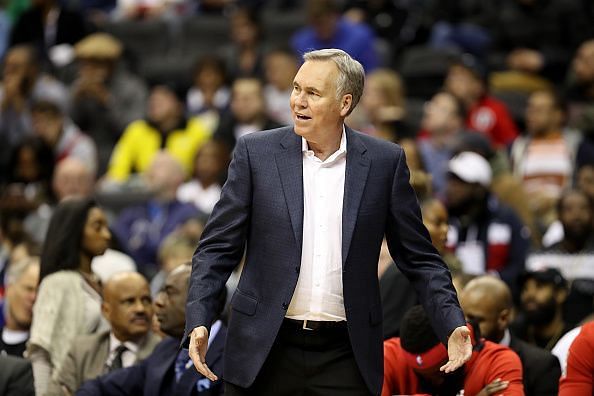
Roster payroll was also a huge contributing factor to the Houston Rockets problems this season. The Rockets payroll sits at $134,843 million and that’s without Luc Mbah A Moute and Trevor Ariza.
It appears that Houston’s management did not want to spend too much payroll, but still want to compete. Clint Capela was a restricted free agent this summer and the Rockets ownership and management struggled with the decision to re-sign their 6’10 center to a five year $90 million dollar contract.
Regardless, as to what Houston says now, Capela was a restricted free agent this summer because Houston did not extend his rookie deal, by November of 2017. That decision likely cost the Rockets a more manageable deal for Capela. Offensively limited, the arrival of Chris Paul meant plenty of catch and dunk opportunities for the big man raising his offensive profile in 2017-18.
Ryan Anderson making $20 million this year and $21 million next was traded for Maquese Chriss amd Brandon Knight two players making a combined $17 million. The removal of Anderson and Ariza shed $17 million from the payroll (Ariza signed for $15 million in Phoenix).
The additions of Carmelo Anthony, Maquese Chriss, Michael Carter –Williams, and the re-signing of Gerald Green, all represent players that would be around for one year, on a very short-term commitment, or represent roster spots that general manager Daryl Morey is uncertain about.
Further, none of these one-year additions or returnees are making more than $4 million a year. Morey’s idea to offer four first-round draft picks for Jimmy Butler, earlier this season, cements the idea that Houston, who were one win from an NBA Finals last year, are trying to compete while being fiscally responsible at the same time. Its not impossible to do both, but Houston’s management seems uncertain and desperate in their player management dealings.
Carmelo Anthony is more of a star by 'name' value at this point
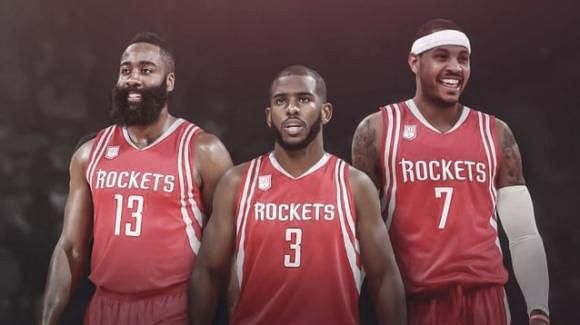
In the process of losing players and trying to be fiscally restrained, in player payroll, the Houston Rockets have lost team chemistry and direction. They tried to make up for that, by signing Carmelo Anthony, a star name, to a reasonable one year deal of $2.4 million dollar contract.
However, the Rockets were obtaining a player, who averages 24 plus points a game, in his career, who had only produced 16.2 a game last season while playing for Oklahoma City. His scoring average in six playoff games for the Thunder was down to 11.8 per game. At age 34, Carmelo Anthony also comes with the baggage, of being, a head coach’s worst nightmare.
Anthony once stated about his first head coach in Denver, Jeff Bzdelik, in a Chicago Tribune article:
"A player like me, and I think also all five of the players who are starting, they want to get up and down the floor. We want to be free. With this type of coach, he wants to be demanding. And what he wants done, he wants it right when he says to do it."
Usually, when a coach gives an order whether it be to run pick and roll, employ a full court press or asks for defensive intensity, it’s an immediate request. Anthony didn’t get it then and clearly didn’t throughout the majority of his career.
When Houston signed Carmelo Anthony this summer, there was no clear indication that the puzzle, that has frustrated many a head coach, had changed and become coachable. What was clear was that his talents were declining and if Carmelo Anthony is an offensive juggernaut, he is the polar opposite defensively.
With his offensive skills in decline and his defensive desire and work effort always, in question, Carmelo did not fit the Houston Rockets system. With his addition and the other players subtracted, from the roster, Houston was not going to be, as good, as they were last year, when they almost knocked off the Golden State Warriors, in the Western Conference Final.
Basketball, in its easiest terms, is a game, in which, a team that scores more than its opponent after four 12 minute quarters wins. After their first 18 games, Houston were being outscored 107-106. The 107 points against are up by 4 points from last year.
While Carmelo Anthony wasn’t the whole problem, he wasn’t a solution either. You cannot replace team chemistry and on-court knowledge with a name. If being outscored is Houston’s true problem Carmelo Anthony is no longer an offensive surety.
His 13 points per game after 10 matches do not replace the offensive production lost in Trevor Ariza, Luc Mbah A Moute, and Ryan Anderson and he certainly does not replace the defense lost. Anthony is no longer with the Rockets awaiting a trade or a buyout.
As for the other recent roster additions, this past summer, they need time to adapt and learn the Houston style of play. Jeff Bzdelik has returned to the coaching staff to help fix the Rockets defense, but general manager Daryl Morey needs a plan to keep Houston competitive in the Western Conference.